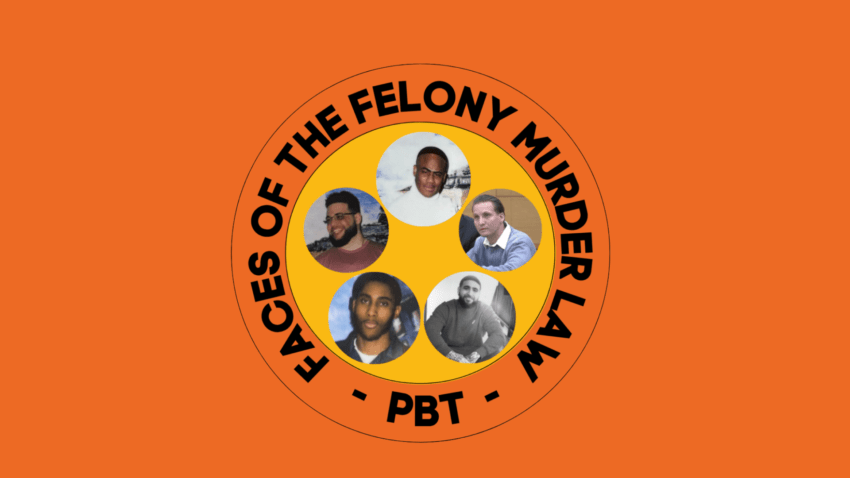In New York state, hundreds of individuals are currently incarcerated for second degree murder, even if they were not at the scene of the crime or had no proven intention to commit the crime. It’s all because of the state’s felony murder law that can carry a maximum sentence of twenty-five years to life.
Prisoners’ Brain Trust (PBT), an organization dedicated to ending carceral harm, is working to repeal the felony murder law at the state level.
Alisha Kohn, Vice President and Co-Executive Director of the Prisoners Brain Trust, co-founded PBT with Paris E. Whitfield, President of PBT, writer, and advocate who is currently incarcerated for a wrongful conviction under the felony murder law.
Kohn, who was also formerly incarcerated, is working with Whitfield and several others to repeal the felony murder law and spotlight how this law disproportionately affects Black, brown, and low-income communities.
“It is used as a catch all by our district attorneys. It’s used as a way to put a bunch of people in jail who were not even associated or at the scene of the crime,” said Kohn, “It doesn’t actually put the people who are convicted for causing actual violence away into prison.”
According to the Felony Murder Reporting Project Data for New York, Black people are 19% more likely to be incarcerated under this law than white people, and Latine people are 6% more likely to receive a felony murder charge than white people. In addition, the law disproportionately affects young people, with the median age at offense for a person with at least one felony murder conviction being 25.6 years old.
Prisoners’ Brain Trust highlights five of the hundreds of stories of those who have been convicted under this law through their Faces of the Felony Murder Law campaign and features the writing of current and formerly incarcerated folks with their newsletter, The Bulb.
Nathaly, Board Member, Director of Social Media for Prisoners’ Brain Trust and a Steering Committee Member of the Face of the Felony Murder Law Campaign, said that while the focus of their organization is repealing the felony murder law, she also hopes to see New York’s correctional system move towards true rehabilitation.
“When you have a to life sentence as well with possibility of parole, it doesn’t matter what you did to rehabilitate yourself. Or the changes you’ve done,” said Nathaly. “At the end of the day, it’s up to those judges on the parole board to decide if they wanna let you out or if you’ll be a good fit, right? How much more rehabilitation can an individual do if you’re still going to see what’s written on paper and you’re not going to see my accomplishments.”
Still, both Kohn and Nathaly recognize that education is needed in order for people to understand the way this law disproportionately affects marginalized communities.
“ We’re not talking about opening the floodgates,” said Kohn. “We are talking about actual accountability, actual support of when people are coming home, and having some humanity.”
Listen for more, or join Prisoners’ Brain Trust at their Sixth Annual Attica Community Remembrance Day BBQ on Saturday, September 13th, from 2–6 PM the Poughkeepsie Waterfront. This year’s theme is “Echoes Behind the Wall Fires at the Border,” and it will honor the voices and writing of incarcerated folks.
Image: Faces of the Felony Murder Law (Credit: Alisha Kohn)


How can I help?